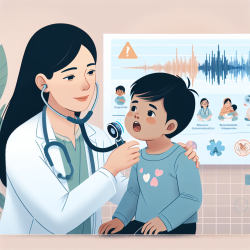The COVID-19 pandemic has brought significant changes to educational settings, with face masks becoming a common preventive measure in schools. The research article titled "Masked education? The benefits and burdens of wearing face masks in schools during the current Corona pandemic" by Manfred Spitzer provides an in-depth analysis of the impact of face masks on education. This blog will explore the key findings from the study and offer practical insights for practitioners looking to improve their skills or conduct further research.
Benefits of Face Masks
Face masks are effective in preventing the spread of SARS-CoV-2, the virus responsible for COVID-19. The study highlights several key points:
- Face masks reduce the transmission of the virus by containing respiratory droplets.
- Wearing masks is a cost-effective and easy-to-implement measure.
- Face masks protect both the wearer and those around them, especially in settings with asymptomatic individuals.
Burdens of Face Masks
While face masks offer significant benefits, they also present challenges, particularly in educational settings:
- Face masks impair verbal and non-verbal communication, making it difficult for students and teachers to understand each other.
- Emotional signaling is blocked, reducing the ability to recognize and respond to positive emotions like smiles.
- Face masks can cause physical discomfort, such as headaches and skin irritation.
Improving Communication and Emotional Signaling
To mitigate the negative impacts of face masks, practitioners can consider the following strategies:
- Use clear masks that allow visibility of the mouth to improve speech understanding and emotional recognition.
- Enhance verbal communication by speaking more clearly and using gestures to support understanding.
- Encourage students to express their emotions verbally to compensate for the lack of facial cues.
Encouraging Further Research
Given the complexities and varying impacts of face masks in different educational settings, further research is essential. Practitioners are encouraged to explore the following areas:
- Investigate the long-term effects of face mask use on emotional development and social interactions in children.
- Examine the effectiveness of different types of face masks in educational settings.
- Explore alternative methods to enhance communication and emotional signaling while wearing face masks.
To read the original research paper, please follow this link: Masked education? The benefits and burdens of wearing face masks in schools during the current Corona pandemic.










